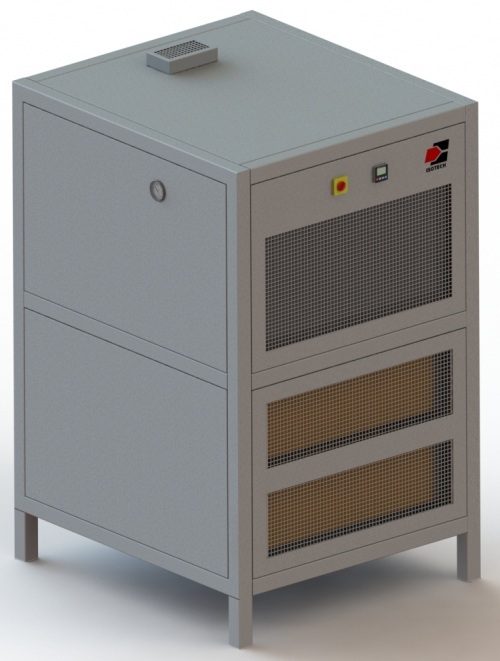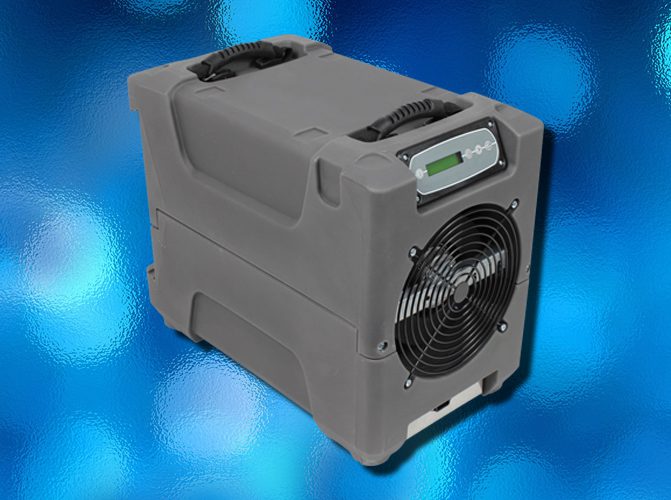Do you live in a humid or muggy climate and notice a lot of condensation on windows and mirrors? Does anyone in your household suffer from allergies or asthma? Have you ever had a mildew or mould problem? If you answered yes to any of these questions, a dehumidifier may be beneficial to your house. Let’s discuss the advantages of using a dehumidifier.
What is the Purpose of a Dehumidifier?
A dehumidifier purifies the air by removing excess moisture and humidity. While relative humidity levels might fluctuate due to changing seasons, weather, energy use, air movement, and other factors, most experts believe that keeping it between 30 and 50 per cent is a desirable goal, with 45 per cent being ideal for comfort and health. Humidity levels exceeding 50%, according to Consumer Reports, can harbour dust mites, mildew, and mould, which can cause allergies and other health issues. Because dark locations like your basement don’t have access to sunlight or fresh air from outside, it’s critical to keep humidity below 50%.

A hygrometer, which can be found at hardware and home improvement stores, can be used to determine the relative humidity level in your home. You should expect higher average interior humidity in the summer and lower average interior humidity in the winter. A home dehumidifier might be a wise investment if your hygrometer routinely reads above 50% humidity.
What to Look for in a Dehumidifier
There are two types of dehumidifiers:
Compressor dehumidifiers: These are the most common and usually the most economical dehumidifiers. They work by passing wet air over a chilled coil and sucking the moisture out into a disposal tank via condensation. The air is then recirculated after being reheated by a warming coil.
The compressor version has some disadvantages. They’re usually loud and big, and they’re best used in warmer locations because they rely on condensation, which requires the air to be quite warm when it enters the machine.
Desiccant dehumidifiers: These remove moisture using a desiccant wheel, which is subsequently dried using an internal heater. Compared to compressor dehumidifiers, desiccant dehumidifiers are quieter and last longer. There is no need to empty a trash tank, and no refrigerant is required.
Desiccant humidifiers are more expensive, and they use a little more energy than compressor humidifiers. If you reside in a colder region, though, it may be the best option.
5 Advantages of Using a Dehumidifier
Helps allergy sufferers
Many allergens and allergy triggers, such as dust mites, mould, and mildew, thrive in humid settings. Bathrooms, laundry rooms, and basements, for example, may especially be prone to harbouring allergy-causing compounds that can spread throughout a property due to poor air circulation. A dehumidifier can help reduce the moisture that promotes allergy growth while also improving air quality and preventing the growth of some germs and viruses.
Reduces pest-related issues
Allergens aren’t the only unpleasant guests who enjoy moist environments. Spiders and roaches, for example, prefer damp conditions. Pay close attention to the rooms with the most insect activity; if they contain water or have a high level of humidity, you may have discovered the source of the problem.
Regulates moisture levels
High levels of moisture in a home can lead to warping and degradation of the structure. Mould can grow as a result of condensation. Mould growth should be avoided at all costs because the steps to eliminate it can be both hazardous to one’s health and extremely costly.

Ironically, due to reduced air circulation, homes that are effectively sealed for energy efficiency can have some of the worst problems. You may need a dehumidifier to avoid mould if you detect peeling paint or wallpaper, strange stains, or a musty stench.
Enhances comfort
Nobody likes being sticky, especially when they’re trying to sleep. In general, homes with optimum humidity levels are more pleasant. When a dehumidifier is used, the indoor air quality is usually enhanced, and the air is kept colder.
Lowers energy expenses
Another advantage of a dehumidifier is that it can help you save money on electricity by making your air conditioner run more efficiently. When deciding between a dehumidifier and an air conditioner, keep in mind that the air conditioner’s primary function is to chill the air, with moisture removal as a bonus. Because a dehumidifier’s sole purpose is to remove moisture from the air, it means your air conditioner won’t have to work as hard to maintain a comfortable temperature, reducing energy consumption and cooling system wear and tear.
We deal with
Environmental Simulation Products
BOD Incubator
Cold Chamber
De Humidifier
Deep Freezers
Dust Chambers
Growth Chambers
Hot and Cold Chambers
Hot air Oven Chambers
Humidity Chambers
Reach in Growth Chambers
Salt Spray Chambers
Solar Chambers
Stability Chambers
Thermal Shock Chambers
Tray Dryer
Walk-in Cold Chambers
Walkin Environmental Chambers
Walkin Hot and Cold Chamber
Water Heated Jacket Oven



Leave a Reply